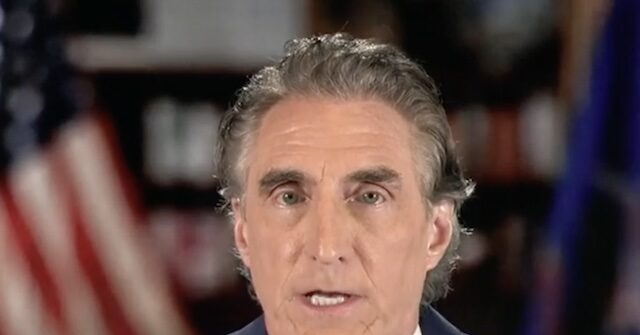On NBC’s “Meet the Press,” Governor Doug Burgum of North Dakota expressed strong confidence in former President Donald Trump’s electoral prospects in the closing days before the election. During the discussion, NBC host Kristen Welker raised the topic of women voters, highlighting remarks from Nikki Haley, Trump’s primary rival and former U.N. ambassador. Haley suggested that Trump’s closing campaign message may not resonate with women voters. This prompted Burgum to reflect on the broader appeal of Trump’s messaging beyond gender, identity, and race. He stated that Trump’s focus on universal economic concerns, such as inflation and job security, is what truly matters to voters across political lines.
Burgum emphasized that the overarching themes of the Trump campaign address the pressing issues that affect all Americans, including independents and Democrats. He noted the alarming inflation rates and the public’s worries about job availability and urban safety. The Governor pointed to the recent disappointing jobs report, underscoring that these topics resonate deeply with voters as they consider their choices on election day. In his view, Trump’s messaging is gaining traction, as evidenced by the close nature of polling data compared to previous elections in 2016 and 2020.
While Burgum acknowledged the tightness of the race, he conveyed optimism stemming from his on-the-ground experiences. He claimed that momentum is building for Trump, particularly highlighted by his attendance at a Penn State football game, where he felt a surge of energy among supporters of all demographics. This energy, according to Burgum, is indicative of Trump’s strong standing in key states such as Pennsylvania and Michigan. He argued that such enthusiasm is more relevant than concerns about individual demographic segments, suggesting that the holistic message of the Trump campaign is what could drive voter turnout.
When discussing specific states, Burgum indicated that he believes Trump will perform well in Pennsylvania due to the general sense of excitement and engagement among his supporters. He also pointed to Michigan, noting the significance of autoworkers and their potential alignment with Trump’s message on economic security. This further solidifies his belief that Trump’s appeal is particularly strong in regions reliant on manufacturing and traditional industries facing economic challenges.
Burgum’s assertions reflect a broader strategy utilized by Trump to connect with voters on issues that transcend identity politics, suggesting a pivot back to core economic concerns that may mobilize a diverse electorate. He contended that when voters focus on issues like safety, jobs, and inflation, they align more closely with Trump’s proposals and vision for the future. This strategic communication might underlie the momentum that Burgum claims to observe, providing a foundation for Trump to reclaim support in areas previously deemed competitive.
Ultimately, Burgum articulated a vision for a significant electoral turnaround for Trump by simultaneously engaging with critical issues and inspiring a united front among various voter classes. In doing so, he highlighted a possible pathway for Trump’s success that relies on resonating with voters’ immediate and tangible concerns rather than solely concentrating on demographic identifiers. As the election nears, Burgum’s perspective embodies a belief in Trump’s ability to galvanize a broad coalition focused on common economic goals, aiming for a decisive victory in the pivotal battleground states.

